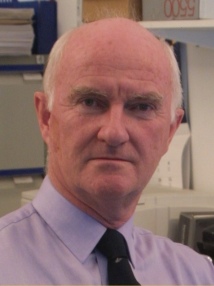Overview
Academic direction
The direction has always focussed on the application of engineering science, particularly chemical engineering, to problems of medical, veterinary and biological significance. The approach to problems has always been highly interdisciplinary, involving innovative applications of engineering science to biology and medicine; it has necessitated learning extensive areas of human and animal physiology and instrumentation techniques.
The work has a long-established international reputation, particularly in the field of bio-fluid mechanics, providing a quantitative mechanistic framework upon which to investigate a wide range of physiological processes. Work undertaken to investigate important biological problems has stimulated valuable novel research by others in basic engineering and science as well as providing a sound mechanistic basis for further biomedical research.
Research areas
His principal areas of research have concentrated mainly, though not exclusively, in respiratory and cardiovascular mechanics. Published work has focused partly on the mechanisms controlling the flow of gas, including soluble noxious gases, in the nose and bronchial airways and exchange with bronchial and alveolar surfaces and partly on the elastic properties of the lung and factors influencing the distribution of ventilation. Work on cardiovascular mechanics led to a fundamentally new appreciation of the fluid mechanical basis of atherosclerosis and the importance of wall-fluid interactions in determining both normal wall mass transport and disease processes.
He has also worked extensively, both in the laboratory and field, on heat stress and welfare problems faced by large mammals, particularly horses, camels and cows, in hot, hostile, working environments. The camel research led to the recognition of the key physiological mechanism underlying brain temperature control, thermoregulation and water conservation central to the survival of a number of arid region dwelling mammals. Thermoregulation studies of the working camel, inevitably under conditions of heat stress and dehydration, contributed to a greater understanding of the workload capabilities of the animal in marginal farming practice in Third World communities and influenced the establishment of appropriate Government welfare and veterinary management guidelines.
The anticipated hot and humid climatic conditions at the 1996 Atlanta Olympic Games posed a severe threat to the safety of horses competing in equestrian events, particularly the Three-day Event, with considerable resultant welfare implications throughout the sport. At the request of the International Equestrian Federation, he undertook an intensive research programme (in collaboration with colleagues at the Animal Health Trust, Newmarket) to establish protocols and strategies for competition management, horse care and acclimatisation, together with an appropriate method of characterising the environmental heat load during competition. These are now accepted standards for the discipline and the conduct of competitions. All this work was undertaken under extremely intense and disruptive worldwide scrutiny by high profile animal welfare and other groups opposing the Games, as well as the local organising committee - the Atlanta Committee for the Olympic Games.
His interest has also focussed on equine respiratory mechanics, the oxygen cost of transport and locomotory strategy during moderate to intense exercise. After racing, over 70% of horses will exhibit bleeding of the lung, known as exercised induced pulmonary haemorrhage (EIPH). He demonstrated that the causative process is locomotory impact related trauma and not the previously held, but unsubstantiated, belief; this research has significant welfare implications for the management of horse racing worldwide.
Other field-based research has included investigations as diverse as the control of human movement during periods of micro-gravity whilst undertaking parabolic flights with the European Space Agency and the environmental and human tourism stresses faced by penguins in Antarctica during the vulnerable nesting period. The penguin studies contributed directly to protocols recognised by the International Association of Antarctic Tour Operators (IAATO) for the management of tourist behaviour.
The notorious murder of Billie Jo Jenkins in 1997 attracted widespread attention. Following the conviction of the foster father, Siôn Jenkins, the forensic basis and other grounds for the verdict were challenged at an unsuccessful appeal. However, in 2003 permission was granted by the Criminal Case Review Commission for an appeal to the High Court. On the basis of his acknowledged academic standing in the relevant fields of biomechanics by both prosecution and defence, Prof Schroter was asked firstly to review the scientific basis of the conviction and the defence case and subsequently to act as the key expert witness in the Court of Appeal and the subsequent retrials leading to Jenkins' acquittal in 2006. This involved extensive experimental research and re-evaluation of the status of relevant forensic science. The forensic science issues of the case centred on the nature of spattered blood from traumatic injury and mechanisms that might cause blood to be expired by a victim, alive or dead, coupled with environmental influences that could cause contamination of an assailant or innocent party.
The scientific bases of the processes determining the behaviour of blood droplets derived from air expelled from a victim via the respiratory tract or chest stab wounds are now accepted by the forensic science community and the Courts. The fundamental revision of understanding of this key issue is relevant to many other cases involving blood contamination of suspects. The case made English legal history as the most scientifically complex and expensive murder case ever investigated and tried.
His expert opinion has since been sought in a number of other high profile Criminal Case Review Commission murder appeals in the High Court and subsequent retrials involving biomechanics and respiration related blood spatter in the UK and pro bono for the longest serving British subject on death row in the USA.

